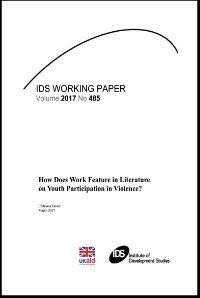By Judd B. Kessler. Sarah Tahamont. Alexander Gelber, Adam Isen
AbstractRecent policy discussions have proposed government-guaranteed jobs, including for youth. One key potential benefit of youth employment is a reduction in criminal justice contact. Prior work on summer youth employment programs has documented little-to-no effect of the program on crime during the program but has found decreases in violent and other serious crimes among “at-risk” youth in the year or two after the program.We add to this picture by studying randomized lotteries for access to the New YorkCity Summer Youth Employment Program (SYEP), the largest such program in theUnited States. We link SYEP data to New York State criminal records data to inves-tigate outcomes of 163,447 youth who participated in a SYEP lottery between 2005and 2008. We find evidence that SYEP participation decreases arrests and convictions during the program summer, effects that are driven by the small fraction (3 percent)of SYEP youth who are at-risk, as defined by having been arrested before the start of the program. We conclude that an important benefit of SYEPs is the contemporaneous effect during the program summer and that the effect is concentrated among individu-als with prior contact with the criminal justice system
Journal of Policy Analysis and Management, Volume41, Issue3. Summer 2022. Pages 710-730



